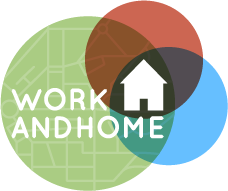How work is organised is now very different to 30-40 years ago. Home-based self-employment and businesses (HBBs) are part of this change. Modern economies have produced high levels of self-employment in Europe outside the agricultural sector. Now almost 13% of non-farm workers are self-employed in the EU27. The Netherlands is one of the countries in Europe that has experienced the largest increase in self-employment over the past 15 years. In the UK Labour Force Survey 60% of the self-employed work from home. Most importantly, self-employment is not a recession phenomenon nor has it declined after the dotcom bust with Greece and Spain consistently having a high rates of non-farm self-employment.
Development of non-farm self-employment as percentage of non-farm employment in Europe, Eurostat Labour Force Survey

Source: Reuschke, 2016
The role home-based work plays in modern economies becomes even clearer if we look at firm counts. The European economy is made up of micro firms that are firms with zero to nine employees. In the UK, for example, three quarters of all firms do not have any employees. Approximately 45% of all firms in the UK can be expected to be home-based. Home-based businesses will vary across space. In cities with a strong service economy the significance of home-based businesses may be even higher. The Scottish Government estimates that 69% of firms in the City of Edinburgh are home-based.
Micro firms and home-based firms, 2011 (EU) and 2013 (UK)

Data-source: Eurostat, BIS Business Demography, Scottish Government
Source: Reuschke, 2016
Clearly, if 10% of the workforce are home-based self-employed workers and half of all businesses are run from the home, this will affect neighbourhoods and the urban structure in ways not captured by existing economic theory and urban models.
